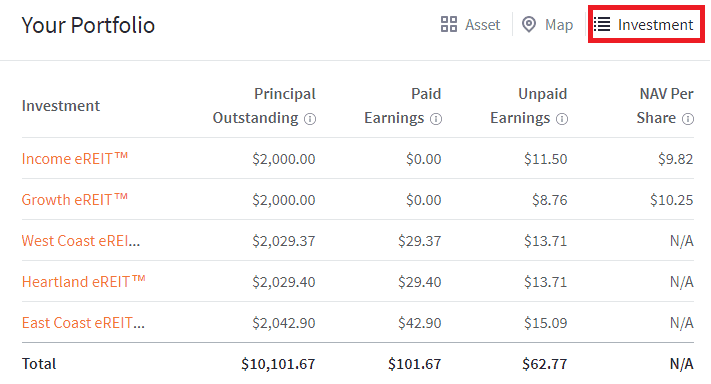
Forex trading can be a lucrative and exciting career. It isn't for everyone. It takes patience, discipline, as well understanding the risks involved. Before you invest your money in the forex market, take some time to determine if it's right for you.
Forex market jobs can be varied. From analysts to software developers to account managers, there are plenty of options to consider. Some jobs require higher levels of knowledge than others. It's important that you do your research before making any decisions about your forex career.
Analysts provide information about the forex industry, such as currency trends and price charts. Analysts analyze variables that impact the currency values and provide this information to traders. This might include hosting webinars and educational seminars.
Software developers develop forex trading platforms, which allow clients to make trades online. They should have a bachelor’s degree and knowledge in programming languages, web servers, and operating systems. They may work for clients directly or for brokerage firms, depending on the company.

Account managers decide which trades clients should make based on their specific needs. They are responsible for a large amount of work and must show professionalism as well as the ability to reach sales goals. You may also need to be able to speak another language.
Some forex jobs require you to trade for a third party. Institutional investors and multinational companies hire traders to trade foreign currencies. Forex traders can begin as assistants and move up to more senior positions. These individuals may earn a salary or a performance bonus, depending on their company.
Marketing coordinators are able to coordinate logistics between vendors, clients, and customers for those who want to be more involved. They are also able to design and execute marketing campaigns that are successful.
A forex sales representative is an excellent way to learn about markets and offer useful advice to customers. They can provide updates to the marketing director and make sure that delivery times are accurate.
Forex markets are open 24 hours a day, five days a week. You still have many options to participate in Forex markets, despite their reputation for being volatile. Experienced people are more likely than those who have never been in this market.

Many jobs in the forex industry are similar to those found in the traditional office. These positions can have unusual hours, long work days, and very specific requirements. Forex careers can be rewarding, no matter what your interests are in accounting, marketing or software development.
Check out Jobs in Forex to see if you're ready for a job in the forex industry. You can create a job-seeking profile, sign up to receive email job alerts, and store your CV securely online.
FAQ
What is a fund mutual?
Mutual funds are pools of money invested in securities. Mutual funds provide diversification, so all types of investments can be represented in the pool. This helps reduce risk.
Managers who oversee mutual funds' investment decisions are professionals. Some funds let investors manage their portfolios.
Because they are less complicated and more risky, mutual funds are preferred to individual stocks.
What is a bond and how do you define it?
A bond agreement is a contract between two parties that allows money to be transferred for goods or services. It is also known simply as a contract.
A bond is typically written on paper and signed between the parties. This document includes details like the date, amount due, interest rate, and so on.
When there are risks involved, like a company going bankrupt or a person breaking a promise, the bond is used.
Sometimes bonds can be used with other types loans like mortgages. This means that the borrower will need to repay the loan along with any interest.
Bonds are used to raise capital for large-scale projects like hospitals, bridges, roads, etc.
The bond matures and becomes due. When a bond matures, the owner receives the principal amount and any interest.
Lenders lose their money if a bond is not paid back.
Can bonds be traded?
Yes, they do! As shares, bonds can also be traded on exchanges. They have been trading on exchanges for years.
The only difference is that you can not buy a bond directly at an issuer. They can only be bought through a broker.
Because there are less intermediaries, buying bonds is easier. You will need to find someone to purchase your bond if you wish to sell it.
There are many kinds of bonds. There are many types of bonds. Some pay regular interest while others don't.
Some pay quarterly, while others pay interest each year. These differences make it possible to compare bonds.
Bonds are very useful when investing money. If you put PS10,000 into a savings account, you'd earn 0.75% per year. You would earn 12.5% per annum if you put the same amount into a 10-year government bond.
You could get a higher return if you invested all these investments in a portfolio.
Statistics
- Even if you find talent for trading stocks, allocating more than 10% of your portfolio to an individual stock can expose your savings to too much volatility. (nerdwallet.com)
- The S&P 500 has grown about 10.5% per year since its establishment in the 1920s. (investopedia.com)
- For instance, an individual or entity that owns 100,000 shares of a company with one million outstanding shares would have a 10% ownership stake. (investopedia.com)
- US resident who opens a new IBKR Pro individual or joint account receives a 0.25% rate reduction on margin loans. (nerdwallet.com)
External Links
How To
How to Invest in Stock Market Online
Investing in stocks is one way to make money in the stock market. There are many ways you can invest in stock markets, including mutual funds and exchange-traded fonds (ETFs), as well as hedge funds. The best investment strategy is dependent on your personal investment style and risk tolerance.
To become successful in the stock market, you must first understand how the market works. This involves understanding the various types of investments, their risks, and the potential rewards. Once you are clear about what you want, you can then start to determine which type of investment is best for you.
There are three major types of investments: fixed income, equity, and alternative. Equity is the ownership of shares in companies. Fixed income means debt instruments like bonds and treasury bills. Alternatives include things like commodities, currencies, real estate, private equity, and venture capital. Each category has its own pros and cons, so it's up to you to decide which one is right for you.
You have two options once you decide what type of investment is right for you. The first is "buy and keep." This means that you buy a certain amount of security and then you hold it for a set period of time. Diversification, on the other hand, involves diversifying your portfolio by buying securities of different classes. For example, if you bought 10% of Apple, Microsoft, and General Motors, you would diversify into three industries. Multiple investments give you more exposure in different areas of the economy. This helps you to avoid losses in one industry because you still have something in another.
Risk management is another key aspect when selecting an investment. Risk management allows you to control the level of volatility in your portfolio. You could choose a low risk fund if you're willing to take on only 1% of the risk. If you are willing and able to accept a 5%-risk, you can choose a more risky fund.
Learning how to manage your money is the final step towards becoming a successful investor. The final step in becoming a successful investor is to learn how to manage your money. Your short-term, medium-term, and long-term goals should all be covered in a good plan. Then you need to stick to that plan! Don't get distracted with market fluctuations. Stick to your plan and watch your wealth grow.